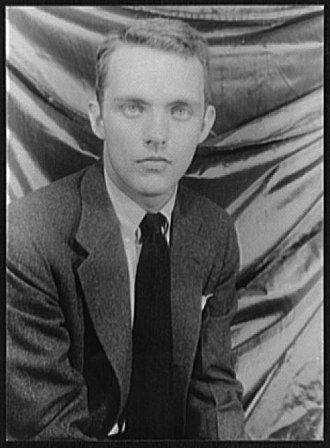
I’ve written about Frederick Beuchner (BEEK-ner) before. An American writer, novelist, poet, and theologian, he has published more than thirty books, been a National Book Award finalist and nominee for a Pulitzer Prize. He lives in Vermont and is still writing at the age of ninety five. Born in New York City in 1926, his family moved frequently as Beuchner’s father searched for work. In The Sacred Journey, Beuchner wrote, “Virtually every year of my life until I was fourteen, I lived in a different place, had different people take care of me, went to a different school…Home was not a place to me when I was a child. It was people.”
Then, even this changed in 1936 when Beuchner was ten. His father committed suicide, a result of his conviction that he had been a failure.
But the young Beuchner persevered and, after high school, was admitted to Princeton University. In the middle of his tenure there, he was drafted into the army. This particular piece came from a remembrance of that time, 1944-1946.
The Need to Praise
THE NEXT WINTER I sat in Army fatigues somewhere near Anniston, Alabama, eating my supper out of a mess kit. The infantry training battalion that I had been assigned to was on bivouac. There was a cold drizzle of rain, and everything was mud. The sun had gone down. I was still hungry when I finished and noticed that a man nearby had something left over that he was not going to eat. It was a turnip, and when I asked him if I could have it, he tossed it over to me. I missed the catch, the turnip fell to the ground, but I wanted it so badly that I picked it up and started eating it anyway, mud and all. And then, as I ate it, time deepened and slowed down again. With a lurch of the heart that is real to me still, I saw suddenly, almost as if from beyond time altogether, that not only was the turnip good, but the mud was good too, even the drizzle and cold were good, even the Army that I had dreaded for months. Sitting there in the Alabama winter with my mouth full of cold turnip and mud, I could see at least for a moment how if you ever took truly to heart the ultimate goodness and joy of things, even at their bleakest, the need to praise someone or something for it would be so great that you might even have to go out and speak of it to the birds of the air.
Buechner, Frederick. Listening to Your Life . HarperCollins.
Beuchner is one of those writers that transcends characterization. And resists labeling. Like so many of our great writers, he is at heart a storyteller, and the stories he tells are at their core autobiographical. He writes about himself, and his own insights become our insights, our own windows into our own lives. There’s an air of the mystical about it. Author and critic Brian D. McLaren says it well.
“I have no desire to analyze what makes Beuchner’s writing … so extraordinary. Neither do I want to account for Bob Dylan’s raspy mystique, the peculiar beauty of a rainbow trout in a riffle, or a thunderstorm’s magnetic terror. I simply want to enjoy them. They all knock me out of analysis and smack me clear into pleasure and awe.”
Hope everyone is having a wonderful week. Thanks for reading.


Like it
Thought you might…
Thx for sharing this author w/us. It sounds like it’s right up my alley.😉